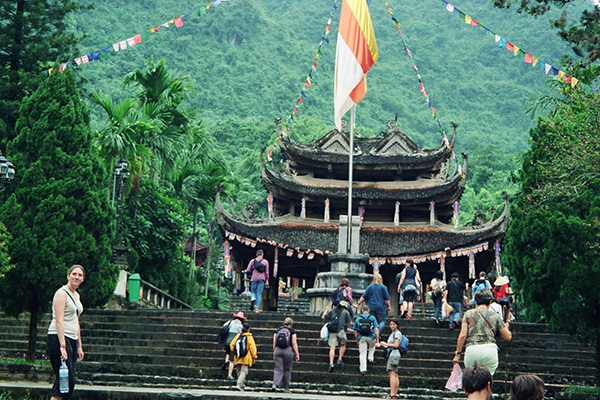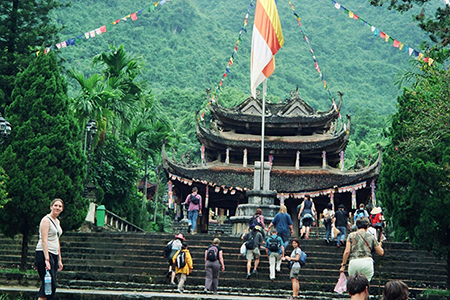I came back from an excursion to the ruins of the Castle of Palatine Electors which looks down on Heidelberg, its old bridge spanning the river Neckar. Rather Tued by the trip, I was nonetheless happy to count myself one of the three million yearly visitors to the site.
My hostess, Hamelis Schulte, invited me to the Griechische tavern nestled at the foot of the Castle hill. While I swigged the famous Heidelberg 1603 Pilsner, newly seen images of the city, which is the repository of the oldest Germanic cultural traditions, crowded into my mind. The magnificent castle, an architectural vestige of German renaissance, the Gothic church Heiliggeistkirche which housed in the 16th century an imposing collection of 3,500 handwritten manuscripts and 8,800 printed works, one of the oldest universities of Germany and world, the old town with its ochre roofs strung out along the river... I basked in the atmosphere of this hallowed place of humanism, protestant theology, and German romanticism.

I was called back to reality by the gentle summons of Hamelis Schulte who assembled her guests, a dozen German friends of all ages, before the television screen to watch a presentation of a few Vietnamese video documentaries brought by the film-maker Luong Duc, my companion. The first video showed a pilgrimage to the Perfume Pagoda, located about 60 kilometres from Hanoi.
I must confess that it took me some effort to escape from the charm of the German cultural ambiance and to place myself on the level of my Vietnamese culture. Here, snowflakes were flying over denuded chestnut trees; there, the golden beams of the sun were playing on tender green ricefields.
On the small screen, pilgrims were sailing on bamboo sampans to the Perfume Pagoda. The sight of a gold and crimson lacquered statue of Buddha was overlaid in my mind with the figure of Christ.
I then heard the dear voice of H. Schulte commenting on the sequences and recalling her own memories of that famous Buddhist sanctuary, which she has visited a few years before.
We are a professional Tour company in Vietnam, please click in to the link to find our more or continue to ready the articles
The Perfume Pagoda is set in the frame of limestone hills with picturesque grottoes. Pilgrims take a sampan to go from the Outer to the Inner shrines. The large expanse of water is dotted with rocks in the shape of a rooster, an elephant, a lion, a tray of boiled glutinous rice... The pilgrims also have to travel along a two-kilometre mountain trail, leaning on bamboo sticks, murmuring prayers of Nam Mo A Di Da Phat (Glory to the Buddha Amitabha) to alleviate their fatigue and also as a greeting to each other.
The soundtrack featured the verses of the aesthete scholar Chu Manh Trinh (1862-1905), sung by the artist Thanh Hoai to the tune of a popular Taoist cult in her melodious voice:
"Chirping among the groves of apricot trees
Birds make offerings of fruit
Floating nonchalantly along Swallow Stream
Fish listen to prayers to Buddha
The sounds of bell arc wafted by the wind
The traveller of this world, poor mortal, watching
The stow transformation of the sea into mulberry fields
Suddenly wakes up from his day-dream.
Fingers count the beads
While voices sing praises to Buddha
On this gateway to clemency and compassion
The more the heart opens itself to the charm of the landscape
The more it is captivated by its beauty".
After the last video sequence, I ask H. Schulte her impression of the Buddhist pilgrimage she had made in Vietnam, as a Protestant. Here is the answer given by this doctor of theology and college professor:
"My first feeling was one of admiration and veneration before this holy sight, in particular, before the statue of Buddha. I was impressed by the joy of the pilgrims, although pilgrimages are also made on Christian lands. I asked myself what made the faithful put offerings at the foot of Buddha. Was it out of piety; was it to ask for assistance, a gift in return? Perhaps, my question came from a European mind which wishes to subject everything to analysis. In any event, as I see it, Buddhism must be an important element in the spiritual and social life of the Vietnamese people."



